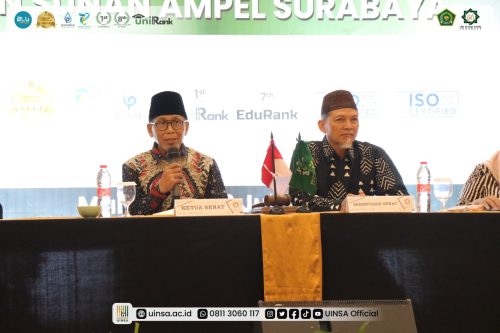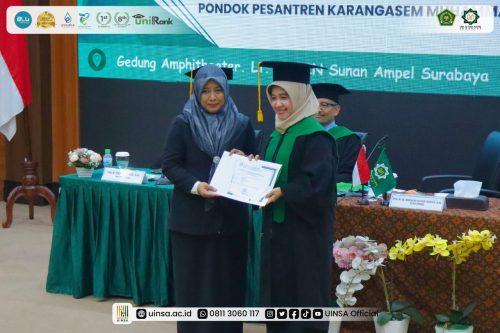“Al-Ghaib” (the unseen) refers to entities that “exist” but elude human senses. It encompasses realms hidden from perception, such as God, angels, jinn, heaven, hell, fate, and beyond. This concept stands in contrast to the materialist perspective, which dismisses “al-Ghaib” as non-existent due to its imperceptibility.”

This article begins with a concise overview of the perspectives of prominent materialist thinkers, including: (1) Democritus (460-370 BC), who proposed that the universe and the human soul are composed of moving and colliding atoms. According to him, when an individual dies, the atoms comprising their soul disperse and reintegrate into the universe. (2) Thomas Hobbes (1588-1679 AD), who asserted that all entities in the cosmos, including humans, thoughts, and souls, are comprised of material substance governed by natural laws. He staunchly opposed the notion of immaterial or spiritual essence. (3) Karl Marx (1818-1883 AD), who posited that the universe, along with humanity, is constituted of matter undergoing dialectical processes, specifically processes of contradiction. He explicitly denied the existence of an immaterial realm. (4) Vladimir Lenin (1870-1924 AD), a modern Marxist, maintained that humans are interconnected with nature and must collaborate with it to satisfy their needs. Like his predecessors, he explicitly rejected the concept of the immaterial.
The materialistic perspective, emphasizing that everything is composed of matter rather than immaterial, presents several drawbacks for the sustainability of human life: Firstly, it disregards the spiritual dimensions of humanity, such as moral values, religion, and love, potentially leaving individuals devoid of meaning and purpose in life. Secondly, materialism often fosters consumerism, promoting excessive consumption of goods, thereby cultivating a materialistic mindset primarily concerned with possessions. Thirdly, materialistic attitudes can exacerbate jealousy and social inequalities, perpetuating a sense of superiority among the wealthy and fostering disparities between the affluent and the impoverished. Fourthly, materialism may prioritize material possessions over nurturing social connections, leading to feelings of loneliness and isolation. Lastly, this perspective may incentivize the overexploitation of nature for personal gain, contributing to significant environmental degradation.
In certain contexts, it’s important to recognize that this perspective has had its moments in assisting humans in overcoming challenges they encounter. However, new issues often emerge, particularly when individuals confront psychological and spiritual struggles. As distinct beings, humans frequently find that their needs cannot be entirely satisfied through material means alone. Consequently, they are compelled to explore solutions beyond materialism, incorporating immaterial or spiritual dimensions. Hence, there exist several alternatives that can facilitate a more balanced existence addressing both physical and spiritual needs. These alternatives include spiritualism, which underscores moral values, religion, and love; minimalism, advocating for simple living by possessing only necessities; and communalism, which prioritizes cooperation and mutual aid among individuals.
Why should humans embrace the concept of the “unseen” (ghaib), as highlighted in Chapter al-Baqarah, Verse 3, “those who believe in the unseen” (alladhina yu’minuna bil-ghaib)? Belief in the unseen stands as a cornerstone of Islam, a distinction reserved for those elevated to the status of muttaqin (the devout beyond mere belief). For the righteous, this belief offers profound significance, furnishing life with purpose and instilling a serene composure amid life’s myriad uncertainties. Such faith in the unseen furnishes a robust spiritual foundation, fortifying one’s connection with the Divine and facilitating adept navigation through life, grounded in unwavering faith and reliance. Here are compelling reasons why humans should embrace belief in the unseen (al-ghaib):
Firstly, the inherent limitations of human knowledge underscore the necessity of belief in the unseen. Humans are bound by constraints in both knowledge and capability. We cannot perceive or comprehend every facet of the universe. Many phenomena lie beyond the grasp of our senses and rational faculties, constituting the realm of the unseen. Embracing belief in the unseen entails recognizing that there exists a realm greater than ourselves, transcending the bounds of scientific or rational inquiry.
Secondly, belief in the unseen serves to address profound existential inquiries that often perplex humans. Questions concerning our origins, the afterlife, and the essence of existence remain perennially elusive. Science and reason alone cannot offer comprehensive answers to such inquiries. Faith in the unseen, encompassing concepts like God, heaven, and hell, provides frameworks and insights into unraveling the mysteries surrounding life and death.
Thirdly, fostering security and hope amidst life’s uncertainties and trials is another pivotal aspect of belief in the unseen. In a world fraught with challenges, where anxiety and fear can easily take hold, faith in the unseen offers a beacon of reassurance and optimism. The conviction that a higher power watches over and safeguards humanity instills a profound sense of serenity and resilience, empowering individuals to confront adversities with fortitude.
Fourthly, belief in the unseen, encompassing notions of Allah and the afterlife, serves as a cornerstone for cultivating moral and ethical values through virtuous deeds. This belief system inspires individuals to engage in righteous actions (amal shaleh), guided by the understanding that their conduct is observed and will be held to account. The awareness of divine oversight incentivizes ethical behavior and fosters a commitment to moral integrity.
Fifthly, belief in the unseen enriches the tapestry of human existence by imbuing it with a spiritual dimension and deeper significance. Engaging in spiritual practices such as prayer, contemplation, and religious rituals enhances one’s connection to something transcendent, fostering feelings of peace, contentment, and interconnectedness with the cosmos. These spiritual experiences enrich life, infusing it with meaning and a profound sense of fulfillment beyond the material realm.
The term “muttaqin” used in this verse delineates those who not only believe in the unseen but actively embody their beliefs through righteous actions, such as prayer and charitable deeds. “Muttaqin” conveys a sense of devotion and piety, indicating individuals who are deeply committed to manifesting their faith in tangible ways. Moreover, this term holds special significance in the eyes of Allah, as it signifies righteousness and moral integrity. According to al-Qur’an and previous scriptures, including the Torah, Psalms, Gospel, and the shuhuf of prophets Abraham and Moses, only the righteous possess the discernment to perceive the transcendent signals from Allah.
Dr. Sanuri, S.Ag., M.Fil.I., serves as the Head of the Ilmu al-Qur’an & Tafsir Study Program within the Doctoral Program at UIN Sunan Ampel Surabaya.
















